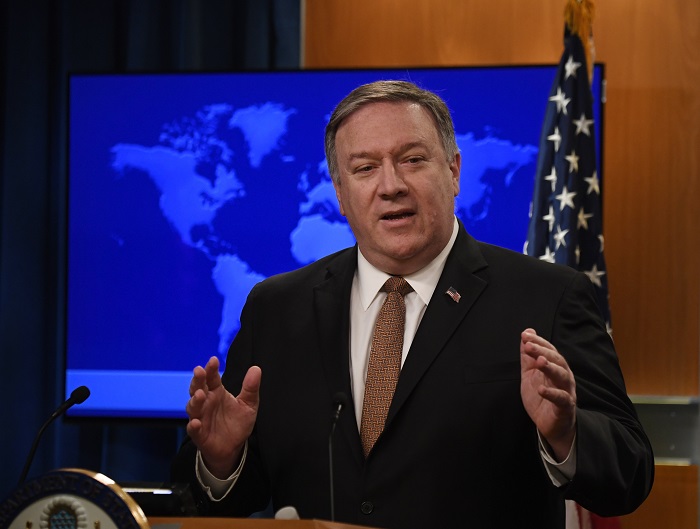Washington, China poses a security threat to the US and its allies, and its infrastructure as well as connectivity projects, including the One Belt One Road (OBOR), have an element of “national security”, US Secretary of State Mike Pompeo has said.
Pompeo’s comments came as China is preparing to host the second Belt and Road Forum in April.
The OBOR, also known as the Belt and Road Initiative, aims to connect Europe, Asia and Africa through a wide network of roads, highways, sea lanes and ports. Its jewel project, China-Pakistan Economic Corridor (CPEC), cuts through Jammu and Kashmir.
New Delhi did not attend the launch of the Belt and Road forum in 2017, saying the CPEC violates its territorial sovereignty.
Pompeo, during a conversation with Rich Lowry at the National Review Institute’s 2019 Ideas Summit, said on Thursday that Beijing posed security threat to the US, its friends and allies.
“They’re moving into the South China Sea not because they want freedom of navigation. Their efforts to build ports around the world aren’t because they want to be good shipbuilders and stewards of waterways. They have a state national security element to each and every one of them.
“The Belt and Road Initiative is no different,” Pompeo said.
“We’ve said this every place we’ve gone, every – if you talk to any of our ambassadors or our charges, they will tell you we are happy to compete on a fair, transparent basis under rule of law with the Chinese anywhere in the world. We’ll win more than our fair share, but we’ll lose some to them too.
“But when you’re showing up with a non-economic offer, whether that’s through state-facilitated, below-market pricing or handing someone something knowing that you can foreclose on their nation shortly, so predatory lending practices, that’s not straight and we are working diligently to make sure everyone in the world understands that threat.”
The world is waking up to this threat, Pompeo said.
“I think Asia and, Southeast Asia in particular, are waking up to this risk, and I hope the State Department can continue to be a part of making sure that they see that, identify it, and that it becomes more difficult for the Chinese to engage in these practices.”
Indian envoy to Beijing Vikram Misri had said earlier this month that New Delhi cannot be a part of China’s Belt and Road Initiative as it ignores its core concerns on sovereignty and territorial integrity.
“India shares the global aspiration to strengthen connectivity and it is an integral part of our economic and diplomatic initiatives,” Misri had said.
“We are ourselves working with many countries and international institutions in our region and beyond on a range of connectivity initiatives.
“However, it is also our belief that connectivity initiatives must be based on universally recognised international norms, good governance and rule of law.
“No country can participate in an initiative that ignores its core concerns on sovereignty and territorial integrity,” the envoy said in an oblique reference to the CPEC.









